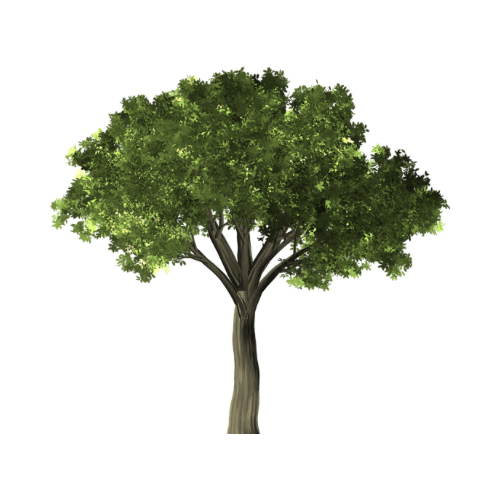God’s commandment in the garden
Let's begin by taking a look at God's first interaction with man in the garden. In Genesis 2:15, it says that "Hashem God took the man and placed him in the Garden of Eden, to work it and to guard it. Now one would have to conclude that either man already possessed the knowledge of how to work the garden and guard it, or that God told man what to do. The text doesn't explicitly say one way or the other, but we would have to assume that man knew what to do, right? And it does say work, so there were things required of man. And we know that in this space was God's presence on Earth… where else later in the Tanach is God's presence? Is it plausible that the Garden of Eden was a first temple if you will?
Then in verses 16-17, Genesis shares with us more specifically that "Hashem God commanded the man, saying, "Of every tree of the garden you may freely eat; but of the Tree of Knowledge of Good and evil, you must not eat thereof; for on the day you eat of it, you shall surely die." Let's ask ourselves a few questions, did man already have knowledge? Would he gain more or different knowledge from eating the fruit? Why would God not want man to eat from that tree? If when God created, everything was declared good or balanced and functional, is it safe to assume that man had good knowledge? One would also have to assume that man possessed the ability to reason and chose if there was a choice to begin with. Could it be then that the knowledge of evil or unbalance or dysfunction would be too much for man? That if they ate of it, they would possess the possibility of becoming unbalanced and dysfunctional. That would be contrary to how God created them. And if man becomes unbalanced and dysfunctional, does that mean that man’s influence could have the same unbalanced and dysfunctional effects on the whole earth? If God told him the consequence was death, is it safe to assume that God did not want man to die? Was man originally created immortal? Was the consequence immediate death or could it be death that takes place later? Is it also safe to assume that this command was a test? Would man fear and obey God or would he choose to disobey and turn away from God? We see other instances in Tanach where man's obedience to God is tested. Some are found righteous and others are declared wicked.
Later on we read that man failed, he chose to eat of the tree, he broke the commandment, he did not fear God and he did not repent, both Adam and Eve blamed their decision on someone else. What if they would have repented, might the outcome have been different? But that is not recorded, so we'll assume they didn't. Then God imposes what we'll call additional consequences. We see that they did not die immediately, however we do know that in Genesis 5:5, Adam died therefore what God spoke was fulfilled. Eve's death is not recorded but I think it is safe to assume that she died too. We'll speak more on the curses in another post, that is not the main point of this article.
Then we see that God says in verse 22, "Behold man has become like us, knowing good and evil; and now, lest he put forth his hand and take also of the tree of life, and eat and live forever." So Hashem God banished him from the Garden of Eden, to work the soil from which he was taken. Let's break down the potential significance of this. Man would now know evil, which means that he would have the capacity to chose evil. If he lived forever, by eating from the other tree, there could potentially be no end to his evil, therefore is it safe to assume that death was the necessary consequence and also the banishment from the garden? Could we also conclude from the banishment that Adam and Eve were no longer qualified to serve in God's garden? Are your wheels spinning yet?
Now, I'm not sure if I would say that everything we considered here is contrary to what "the church" teaches. However, there is definitely more to the story then what they say. Their whole narrative is usually only about the fall, original sin, man's sin nature and how it points to Jesus. All three of those things aren't really relevant to or found in the text, are they? We'll be doing another post on the consequences of Adam and Eve's choices but remember, we are trying to only take a look at what the text actually says.
Clearly there is much that is not revealed to us, however returning back to what is plainly given, we can see that man was given a commandment, he chose to disobey and there were significant, negative consequences. So very simply we could say, the sum of the matter, when all has been considered (even all the unanswered questions) Adam and Eve's whole duty in the garden was to fear God and keep His commandments, for God will judge every deed.

